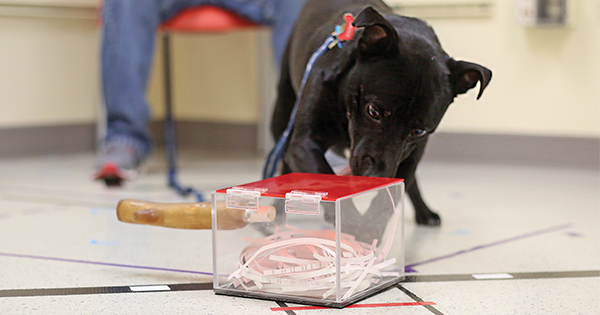
At Yale University’s Canine Cognition Center, psychology professor Laurie Santos has an unusual group of students: a classroom full of tail-wagging dogs. Scholars in her field, comparative cognition, study what other animals have to teach us about what makes human learning special. Dogs are a prime subject for comparison because, like us, they grow up surrounded by human activity.
Santos and her team are currently investigating whether dogs share our cognitive biases when learning new skills. Humans rely on teaching from other humans, but we tend to “overimitate” our instructors: if I see you performing an action that includes irrelevant steps, I am likely to copy even the irrelevant ones. But Santos has shown that when given a puzzle box to open alongside an unnecessary lever, the dog will skip the lever, even if its teacher doesn’t.
“Dogs seem to have a better filter for human-given cues than even humans do,” Santos said. They pick up on whether an instructor considers a step irrelevant, even when humans don’t.
Santos and her team want to test for other human biases that dogs might lack. Children, for example, assuming that teachers provide comprehensive information on a given subject, might hold back from exploring on their own. Will dogs limit their own trial-and-error based on the information teachers provide, or not?
As yet, no university has a feline cognition center, so whoever wants to make history—and yes, herd cats—is welcome to it.

